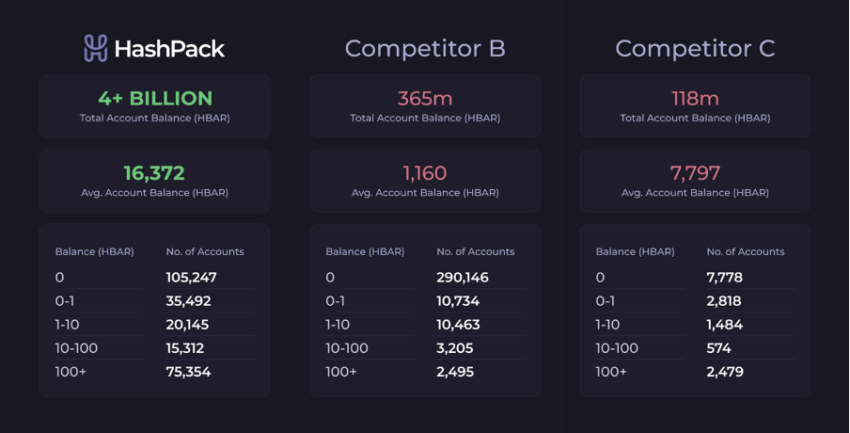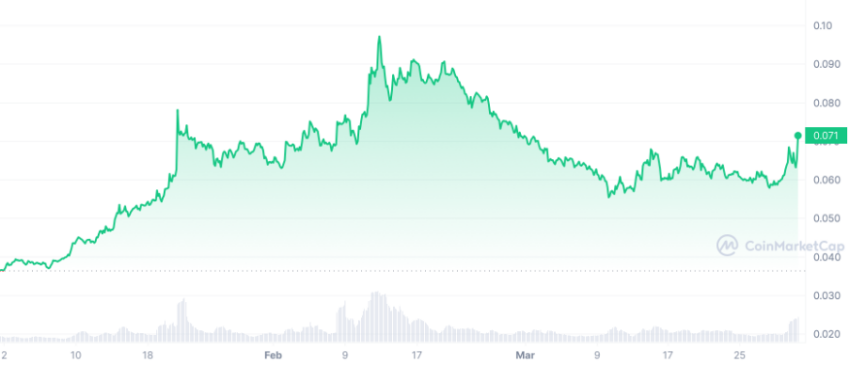Blockchain
Private ventures often develop and promote blockchain technology, but sometimes they work with government agencies toward a common goal. Recently, crypto network Hedera (HBAR) collaborated with the US State Department in an effort to foster transparency.
The trust deficit between citizens and governments is growing in many democracies worldwide. One reason is a growing awareness of corruption and disinformation, which erodes confidence in government institutions and democratic processes. Consider the ongoing street protests in France over certain areas of public policy.
Adopting a multidisciplinary approach that leverages the strengths of various fields, including technology, is one way to address the challenge.
Blockchain technology is a modern tool that can help promote transparency and accountability in government processes. It features a distributed ledger that allows for secure, transparent, and tamper-proof record-keeping of transactions. By using blockchain, governments can build a more reliable and accountable system that enables citizens to verify the accuracy of public records and transactions.
The Sky Is the Limit
Blockchain technology is a revolutionary tool with the potential to transform various aspects of society, including human rights, transparency, and sustainability. Critical here is the enabling of distributed ledger technology (DLT). Blockchain and Distributed Ledger Technology (DLT) are related concepts that have gained popularity as tools to bolster transparency, security, and efficiency in various industries.
At its core, blockchain is a type of DLT comprising a decentralized digital ledger of transactions maintained by a network of computers or nodes. Each block in the chain contains a list of validated transactions and a unique cryptographic hash that links it to the previous block. This creates a chronological and immutable record of all transactions on the network that cannot be altered retroactively without the network’s consensus.
DLT, on the other hand, refers to a broader category of distributed databases that allow multiple participants to have simultaneous access to the same data without needing a central authority. In addition to blockchain, other types of DLT include directed acyclic graphs (DAGs), hashgraph, and Tangle.
Where Blockchain Comes Into Play
It is useful to explore the potential of blockchain technology in improving three critical areas of the political, economic, and social landscape.
Human Rights
One of the advantages of blockchain technology is its ability to provide an immutable and decentralized record of transactions. This property of blockchain technology can be leveraged to develop transparent and tamper-proof systems that can help protect human rights. For instance, blockchain-based systems can record and store critical data such as property ownership, identity, and land registration records. By doing so, blockchain technology can help reduce fraud, corruption, and other abuses in centralized systems.
Moreover, blockchain technology can be used to foster decentralized systems that can help protect the privacy and security of individuals. For instance, blockchain-based techniques can be used to develop self-sovereign identities, where individuals have control over their data and can choose what information to share with whom.
Transparency
Transparency is essential for promoting accountability and reducing corruption in various government, finance, and supply-chain sectors. Blockchain technology can provide an immutable and transparent record of transactions that can help increase trust and reduce fraud.
For instance, blockchain-based systems can be used to develop decentralized voting systems that are transparent and tamper-proof. By doing so, blockchain technology can help avert fraud and promote trust in the democratic process. Moreover, blockchain-based systems can create transparent supply chains that can help reduce environmental and human rights abuses.
Sustainability
Sustainability is one of the most critical issues facing our planet today. Blockchain technology can create decentralized systems that are conducive to sustainability.
Blockchain-based systems can, for example, foster transparent and tamper-proof systems for tracking carbon credits. By doing so, blockchain technology can help reduce greenhouse gas emissions and promote sustainability. Moreover, blockchain-based networks can nurture decentralized systems for managing natural resources such as forests and water. By doing so, blockchain technology can help reduce deforestation, promote sustainable agriculture, and promote water conservation.
Helping the Cause and the Government
The US government has supported one of the digital currencies for its role in enhancing democratic change. According to a recent State Department announcement shared with BeInCrypto, Hedera (HBAR) has committed to advancing democracy. Here the decentralized group is in the company of 150 prominent firms, including the likes of Microsoft, Meta, and others.
The report reads:
“Hedera commits to convening a democracy roundtable on how blockchain technologies can and are supporting human rights, transparency, and sustainability. Current democracy-related applications of blockchain include government systems accountability, fighting misinformation, reducing data manipulation, and tracking financial flows.”
The collaboration with the American government agency is indeed a big step for the crypto market as a whole.
Narratives Around the Ecosystem
Enthusiasm for the network in question has run high. Hedera recently crossed the milestone of completing 6 billion transactions on its Mainnet.
At present, the number of transactions stands close to the 6.20 billion mark. In addition, HashPack, a leading HBAR wallet, hit 250,000 account creations.

HashPack Wallet Account Creation Statistic Source: Twitter
The community also has high expectations for the upgrade scheduled for March 31. This development came just weeks after the network witnessed “technical irregularities” in its smart contract.
Zooming out, the amalgamation of all these narratives did aid the coin (HBAR) surge by more than 9%. On CoinMarketCap, the #30 coin traded at $0.0714.

HBAR Price Performance (YTD) Source: CoinMarketCap
The question arises here: Why was Hedera the only participant from the crypto community? Several networks incorporate immutable record-keeping, decentralized decision-making, publicly accessible data, and smart contracts. BeInCrypto reached out to the Hedera team to get answers but had not received a response as this article went to press.
Nevertheless, deployed responsibly, blockchain technology can embed transparency in government processes and promote greater inclusion in public decision-making. Built-in aspects of blockchain, like transparency and data immutability, have the potential to improve the provision of services for constituents.
 ₿
₿


 Tesla’s Next Move Will Change the World Forever
Tesla’s Next Move Will Change the World Forever 
